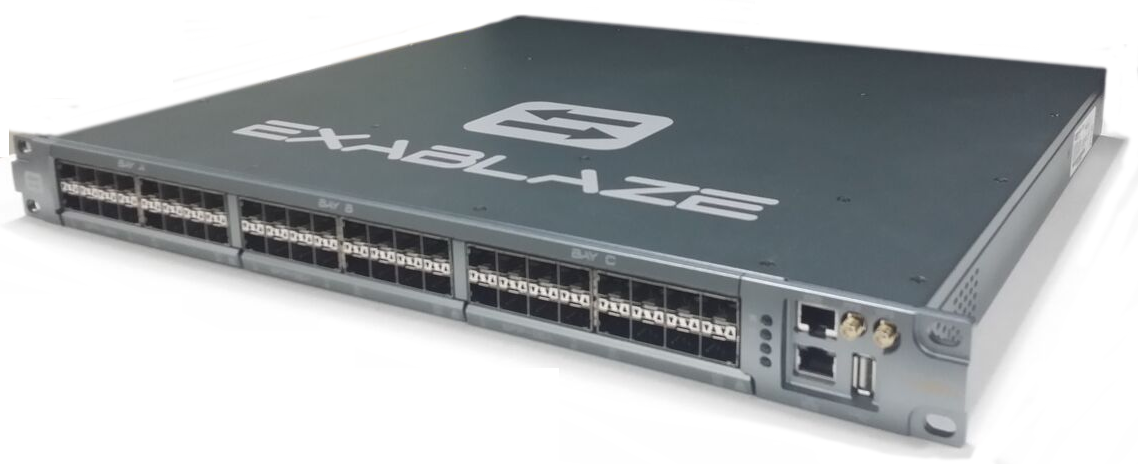- Welcome to the Cisco Nexus 3550F Fusion Documentation
-
- Command Line Interface
- Configuration Management
- User Management
- Diagnostics
- Statistics Logging
- Configuring Ports
- Packet Capture
- Patches and Taps
- FPGA Module
- Switch Objects
- Mux Objects
- MAC Address Table
- IGMP and Multicast
- VLAN Support
- Mirror and Timestamping Fusion
- Mirror and Timestamping Fusion HPT
- Virtual Ports
- LLDP
- SNMP
- TACACS+
- Access Control
- Latency Statistics
- BGP
- Bash Shell
- Automatic Configuration
- Known Issues
About the Cisco Nexus 3550-F Fusion
Introduction
The Cisco Nexus 3550-F Fusion (formerly ExaLINK Fusion) is a uniquely flexible top-of-rack switch with a unique and modular architecture. As a low latency switch, it allows for 95ns switching, 39ns forwarding and aggregation and sub 5ns layer 1 patching and tapping, all within the same device.
Extensible by design, the Nexus 3550-F features two internal module bays that are both fully interconnected via a high speed, reconfigurable layer 1 switch. This allows deployment of both Cisco-developed firmware as well as customer developed logic directly to the FPGA itself.

The Nexus 3550-F
Overview of Features
A unique architecture that provides an unprecedented level of control over your network.
- Tap, patch, and replicate data electronically and with very low and deterministic latency. Tapping using the Nexus 3550-F is far more flexible than using traditional optical taps, and does not suffer from signal degradation associated with high-fanout tapping. Patching allows the Nexus 3550-F to dynamically reconfigure the physical topology of your network with very low latency overhead. Both patching and tapping/replication is done at port to port latencies of 5ns.
- Mux and aggregate feeds with low and deterministic latency. Useful in situations where sharing of a common network resource is required (for example, an order line), muxing delivers the industry's lowest latency of 55ns port to port.
- Full Layer 2 switching where many hosts communicate with each other is fully supported and is performed at 95ns latency, the industry's lowest.
- Timestamping and logging of data flows through the Nexus 3550-F to 2.8ns of accuracy is supported, with multiple time synchronization options available. Additionally, the Nexus 3550-F can be delivered with a stable oven baked oscillator option for low drift hold-over in the event that PPS (pulse-per-second) input or other sources of reference time are lost.
- Development of custom applications can be achieved by pushing FPGA applications directly to the Nexus 3550-F.
Accepts all SFP+ Modules
The Nexus 3550-F works with all brands of SFP+ modules and is not tied to a particular brand.
Other Features
- Dedicated Ethernet management port
- Robust and intuitive command line interface (CLI)
- SNMP-compatible management, for integration with network management and monitoring infrastructure
- Switch configuration, including per-port filtering
- Software updates via USB, HTTP, TFTP, console or web interface
- Access to management interfaces via serial console and Ethernet interfaces
- Monitoring of available SFP+ parameters, including SFP+ model information and dynamic parameters such as received power, transmitted power and temperature
- Log access via CLI and remote logging via syslog
- TACACS+ and AAA
 Feedback
Feedback